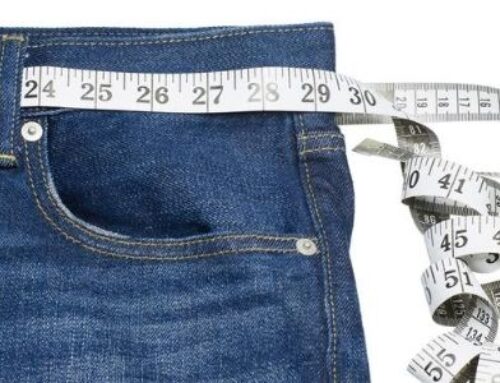
It’s all about moderation, right?
That’s what we’ve been told by health professionals for years. Nothing is good or bad if you have it in moderation. I wholeheartedly agree with this premise. The problem is – what the heck does moderation look like!!!??????!!
The problem with ‘moderation’.
We’re all human. We’re not perfect – in fact we’re far from it. Human beings are notorious for underestimating and over exaggerating. We stretch the truth to make a better story. We spin the story to make something appear better or worse than it really is.
WE BEND THE FACTS!
And it’s not always an intentional act. Our memories can be warped by our emotions and state of mind. Hence, why eye witness testimony is only credible under certain circumstances.
This is exactly why the idea of ‘moderation’ becomes problematic. It usually follows a pattern something like this:
-
Monday 9:00am :“Right! I am going to be healthy this week. I have been snacking too much on lollies and chips and chocolate. I’m going to cut back on the junk food.’
-
Monday 9:00pm: “Wowsers I did really well today. I can afford to have a bit of dark chocolare with a cuppa. I haven’t had chocolate in a week and it’s good to include things in moderation”
-
Tuesday 10:30 am: ‘Oh, someone has bought in cakes for Deborah’s birthday. How nice! I’ll have a cake. I never have cake these days.’
-
Tuesday 5:00pm: There’s some marshmallows left in the cupboard from the weekend. I’ll just have a few. I have eaten really well all day.
-
Tuesday 9:00pm: ‘I’ll finish off that packet of marshmallows. That way they are out of the house’
-
Wednesday 7:00pm: Oh this week is killing me. HUMP DAY I’m going to have a glass of wine with dinner and some dark chocolate after. Make that 2 glasses of wine. I haven’t had anything to drink all week.
-
Thursday 1:00pm: Out to coffee with the team. This is going to be a long meeting. I am going to need a big coffee. I’ll grab a cookie with that. I never buy cookies from this café anymore.
-
Thursday 6:00pm: Catching up with some friends for dinner at a really nice restaurant. I’ll have a glass of wine to go with the meal. And I always love getting dessert when out to dinner because I rarely have dessert at home.
-
Friday 5:00pm: I’ll grab something for dinner on the way home. I’ll pick up some chips as a treat for the end of the week. I haven’t had chips all week. Go me! I’ll stop in at the bottle shop as well, I really feel like a cider. I can’t remember the last time I had cider.
-
Saturday 11:30am: I forget to eat before we left to do the groceries. I’ll grab a coffee and a cinnamon bun to tide me over. The last time I had a cinnamon bun was ages ago.
-
Saturday 5:00pm: A friends birthday party. Nah I will give the cake a miss. I have already had some sausage rolls and cheese and a couple drinks.
-
Sunday 10:00am: Let’s go out to brunch. I really like to do something different on the weekend. I might use one of my ‘treats’ and get the French toast.
Looking back on the week:
I think I was a little better on the “junk” food this week. I didn’t buy any lollies and only had chips on Friday night. I also said no to cake at the party on Saturday.
I am not exaggerating. This is what happens. I know because THIS IS WHAT HAPPENS TO ME!!!
Just this week I looked back on my day and thought ‘All I have had to eat today is some toast, fruit, scrambled eggs and salmon and a handful of nuts. “I’ve had a pretty whole-food day” my brain told me, while completely omitting the almond croissant (which was very kindly purchased for me).
It’s not that I am trying to find a loop-hole or avoid the truth, it’s just that my brain can be quite selective about what it remembers. Our brains compartmentalise each event of ‘unhealthy’ eating and we struggle to see the patterns of eating which are undermining our progress. We just don’t see the bigger picture. So yes, I might not have had lollies all week, but my goal to avoid junk food wasn’t completely successful.
How do we really get moderation?
The definition of moderate is average in amount, intensity, quality or degree. GAHH SO VAGUE!!!!
Average and moderate are very flexible terms because they are both determined by context.
If you are someone who is in the habit of having something sweet after dinner every night, moderating might mean moving to 5 days a week. If you are buying banana bread each time you get a coffee, moderating might mean only getting banana bread once a month.
So the answer to moderation is : There is no wrong answer!!!
It comes down to being fully aware of what you are currently doing and deciding if you are happy with that.
A Step-by-step guide to moderation.
-
What do I want to change.
The first thing to do is to clearly determine what it is you want to moderate.
We know from all of the health information out there that we want to reduce processed food, junk foods and ‘treat’ foods. These things can all be termed discretionary foods. Discretionary foods are foods that are not necessary for a healthy diet and contain large amounts of sugar, saturated or trans fats and salt. Think lollies, chocolate, cake, biscuits, donuts, soft drink, chips.
But what about alcohol? What about homemade muffins? What about crackers? It all becomes very grey.
It doesn’t really matter what it is, as long as you clearly define it from the beginning so that you aren’t accidentally finding loopholes. In changing one habit, we have to be careful not to start another unhelpful habit. For example, saying that I am going to reduce dessert and then replacing it with a hot chocolate instead. Is that a reduction or a deferral? That’s up to you and your nutritionist.
-
What’s my current average.
Honestly tracking your current patterns it the key to making change. You need to understand what triggers food decisions and when food choices are happening unconsciously.
The very act of tracking can start to make us change, which is not a bad strategy to utilise. I thought that I only drank alcohol on 2-3 nights per week. But when I looked back at my previous couple of weeks, it was more like 5-6 nights a week. So I started tracking and it immediately dropped down to 4 because I was more aware.
-
Create a goal and strategy to change
As we mentioned, there is no right or wrong with how frequently you enjoy a discretionary food. Once you have determined how often you currently have something, the aim of moderation is just to reduce it a bit.
- Make sure that your goal or target is realistic. There’s no point saying you will cut something out if it is going to be a personal form of torture.
- Plan for how you will achieve it. What are you going to do when someone offers you biscuits at work? How will you prevent yourself getting ravenously hungry at 3:00pm and then buying chocolate? How can you talk yourself off the donut buying ledge.
- Be kind to yourself. If you don’t meet your goal one day or one week it’s okay! This is a marathon not a sprint. Think of the big picture. It’s all about progress not perfection.
-
Track your progress.
The same way we need feedback on what we are currently doing, we need feedback on how we are progressing. So often clients will come to a consultation and say to me “I think I am doing better” or “I feel like I am eating well more often”. But as we saw before, our memory is not an accurate tool. You need some concrete data to really be able to tell if things are improving.
Habit tracking apps can be a helpful way to do this. A wonderful client introduced me to the Way of Life (https://wayoflifeapp.com/) app which allows you to pick your own habits and then track your consistency.
Still feeling a bit unsure about what moderation should look like for you and your energy needs? Come in and have a chat with one of our dietitians today.
If you’d like further help with your nutrition please click below:





